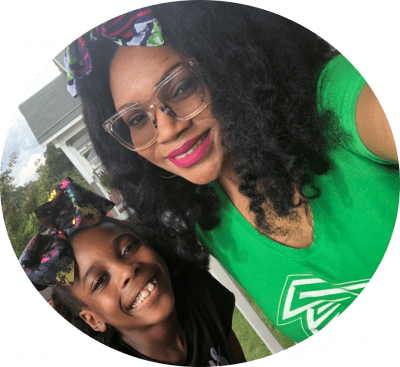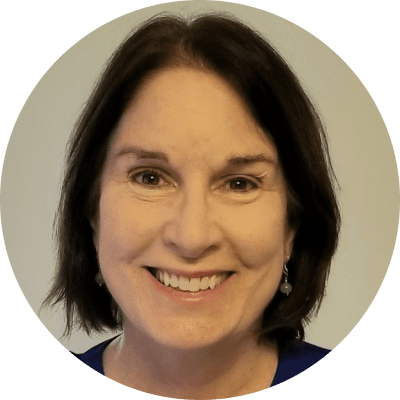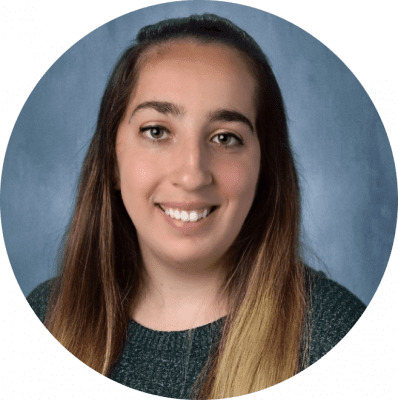
The program recognizes the critical need to increase diversity and access within the field of genetic counseling and we are committed to expanding access to the profession. We believe that the admissions process could be particularly impactful in these efforts. Therefore, we have designed a more holistic admissions process aimed at capturing the intersectionality of applicants. Rubrics used for admissions will be modeled after Educational Testing Service’s holistic rubrics for a fair and consistent review. Additionally, we will work with our admissions committee to recognize and reduce implicit bias through requiring an online training offered through UConn’s Office of Institutional Equity (OIE).
Diversity is the one true thing we all have in common. Celebrate it every day. ~ Winston Churchill
Everyone I've worked with in the program was very receptive to my perspective as 1. An African American woman, and 2. A mother of two. I can only hope that my input gave a positive and insightful contribution to the discussion topics. When I answered discussions from my perspective, I found that none of my classmates shied away from discussing cultural, financial, or racial disparities in medicine and research. Though the program participants appeared demographically predominately Caucasian, that didn’t limit or hinder open, ethical conversations about other minority or cultural groups.

- Toniesha Glover, Clinical Genetics and Genomics Certificate Program, Class of '22
Pay it Forward
Genetic counseling graduate students will have opportunities to actively contribute to the mission of increasing diversity of the profession. Student, alumni, and faculty members of The Genome Ambassadors Program support a public education initiative to advance the genetic and genomic literacy of our community and to increase the diversity of persons who pursue education and careers in the genetic sciences by providing early exposure and access to genomic science and career information. The Genetic Counseling Program curriculum is designed to foster autonomous critical thinking with a commensurate tenet of advocacy for others and the profession.
We will all profit from a more diverse, inclusive society, understanding, accommodating, even celebrating our differences, while pulling together for the common good. ~ Ruth Bader Ginsburg

- Julie Baskin, PhD, Clinical Genetics and Genomics Certificate Program, Class of '22
As an older student in the Clinical Genetics and Genomics Certificate program, I felt the principles of diversity, equity, and inclusion were promoted by the professors, teaching assistants, and students. The courses included a diverse group of learners representing people from various walks of life who differed by race, culture, religion, gender, and age. We had many opportunities to succeed through individual, paired, or group assignments. These opportunities gave us a chance to meet one another online and learn about what each of us were doing outside the program.
In addition to the social opportunities, students were able to thrive through various learning formats. This allowed different types of learners to succeed. For example, I am a tactile/visual learner, so having books and writing notes (to highlight and spill coffee on) allowed me to shine. I think the visual and audio learners were able to succeed through the many video and audio assignments offered. In summary, the curriculum allowed equity and inclusion for all types of learners!
I believe the online format also helped to create equity and inclusion because working remotely tends to “level the playing ground” socially. For paired and group assignments, we had to arrange and coordinate meetings, and this created an atmosphere of “we are all in this together” – which also promoted inclusion. The program also allowed for different personal schedules (and life events) – so I felt a real effort was made by the faculty to accommodate people at different stages of life.
I must admit that I was initially a bit skeptical about the online format, however I learned more clinical genetics and genomics in my 9 months as a UCONN student than I have anywhere else. I felt I achieved my personal learning objectives and am very satisfied with my experiences in the program. I plan to apply to the Genetic Counseling program for next year and hope that as a future student, I can represent multigenerational diversity at UCONN.
Thank you again for a great learning experience!
Your Name is a Song
Diversity and inclusion is more than a program admission policy, availability of scholarship funding, or numbers of historically under represented persons in the profession. We recognize the necessity of respecting the unique needs, perspectives and potential of all our students to earn trust and a commitment from the students for success.
Although interconnected concepts, diversity and inclusion are not interchangeable. Diversity is about representation within whereas inclusion is about how well the contributions and perspectives of different groups of people are valued and integrated into the university learning and genetic counseling professional communities. The UConn curriculum and admission practices are based on a recognition that experiencing diversity influences learning, intergroup attitudes and behavior, and civic engagement.
The presence of diversity guides individuals to inwardly reflect and critically discuss perspectives and opinions beyond those from early life or shaped by others. Diversity of and within groups promotes creativity and innovation, as well as decision-making and problem-solving skills.
As instructors and mentors, we will model good listening. We will work to encourage students to challenge one another and demonstrate how challenging can be done with respect for others.
Your Name is a Song is a book authored by Jamilah Thompkins-Bigelow and widely used as a tool from grade to graduate school to teach why pronouncing names correctly is a big deal for a sense of belonging. Look around and ask if you recognize an effort to see and hear the unique individual as well as the groups' diverse cultures and experiences. In practice, Your Name is a Song, simply starts with a request to amend email signatures not only with pronoun preference, but also with phonetic spelling of your name.
One of my greatest takeaways from the Health Care Genetics program was the value of embracing the perspectives, strengths, experiences, and diversity of those around us, including our peers, co-workers, and teachers. The diversity of the HCG program was not only acknowledged, but celebrated. An integral part of our education came from learning from each other’s unique perspectives. In this way, my learning in this program extends beyond just the theories and science of clinical genetics. I feel uniquely prepared to provide holistic, culturally competent patient care in my future career in pediatric genetics. This is largely due, in part, to the DEI focus in the HCG program that encouraged me to learn from the experiences of those in the program. These perspectives ranged from various cultural beliefs, sexualities, ethnicities, personal and professional experiences, and more.
Additionally, I’ve become much better equipped to reflect on, utilize, share, and embrace my diversity and experiences with disability, education, and values to improve awareness, advocacy, and my cultural competency. The Health Care Genetics program provided me with the diversity, equity, and inclusion lens by which to approach the increasingly complex field of clinical genetics so that I may one day successfully and positively impact the lives of a culturally and genetically diverse patient population.

- Christianne Senechal, MS, Health Care Genetics PSM, Class of '22